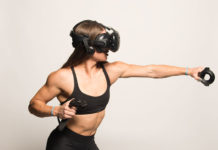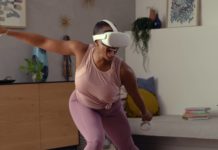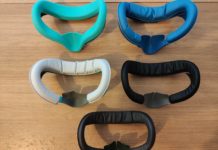Researchers recently discovered the brain displays a different pattern of activity when engaged in a virtual reality experience. Some believe this could play a role in treating Alzheimer’s disease and other memory issues in the future.
According to the study, conducted by neuro-physicists at UCLA and published in the journal Nature Neuroscience, the space-mapping neurons in the brain respond differently and show a different pattern of activity when processing virtual reality messages, as opposed to real-world stimuli. In addition to playing a role in the treatment of Alzheimer’s, they believe their findings could also affect the gaming community and have military, scientific, and commercial ramifications.
The study’s senior author, UCLA professor of physics, neurology and neurobiology Myank Mehta explained, “The pattern of activity in the brain region involved in spatial learning in [VR] is completely different than when it processes activity in the real world.” The region to which Mehta refers to is the brain’s hippocampus, which is the area affected in patients with Alzheimer’s, as well as depression, stroke, schizophrenia, epilepsy, and PTSD. It plays a role in forming memories and creating mental or cognitive maps of an environment.
How this happens is still a mystery, but researchers believe the hippocampus computes distance between objects. To determine how this occurs in a VR setting where there are no other sensory cues and only visual stimuli could be used, the team created a non-invasive VR environment and then looked at how the brains of rats reacted to the virtual world when they couldn’t hear or smell anything.
Brain Response to VR Environment Different than Real-Life Environment
The study’s scientists compared how rats reacted to a virtual world while on a treadmill versus how they reacted to a real-life version of that world under similar conditions. They were surprised to find the rats’ reactions were different and that their hippocampal neurons fired completely randomly, even though their behavior was the same in both environments.
What they found under the VR conditions was that the cognitive map seemed to disappear. Another of the study’s lead authors, UCLA graduate student Zahra Aghajan explained, “careful mathematical analysis showed that neurons in the virtual world were calculating the amount of distance the rat had walked, regardless of where he was in the virtual space.”
Additionally, researchers were surprised to find that despite the rats’ neurons being highly active in the real-world environment, half the neurons shut down in the VR environment.
Repairing Memories is Key
Research from previous studies, including some conducted by Mehta’s group, showed neurons create complex patterns using brain rhythms. He explains, “neurons in this memory-making region talk to each other using two entirely different languages at the same time. One of those languages is based on rhythm; the other is based on intensity.” He went on to compare the language to concurrent melodies of a Bach fugue.
The study showed there is a similar structure to the neural language in the VR world, but what is being communicated between the two is completely different and being done at an entirely different intensity level.
He gives the example of the rhythms in the brain that occur when someone is trying to recall how to walk or to retrieve a certain memory. Mehta suspects that when a person has a learning or memory disorder it is those rhythms that are impaired. He further explains using the same Bach example, “It’s not enough for every violinist and every trumpet player to play their music flawlessly. They also have to be perfectly synchronized.” He believes that retuning and synchronizing these rhythms could help doctors repair damaged memories, but acknowledges doing so is complex and researchers aren’t yet sure how to complete the task.
-Nick Bannon
Do you have know a study that shows how VR can positively impact on your fitness? Post your feedback in the comments sections and one of our editors will get back to you ASAP!





